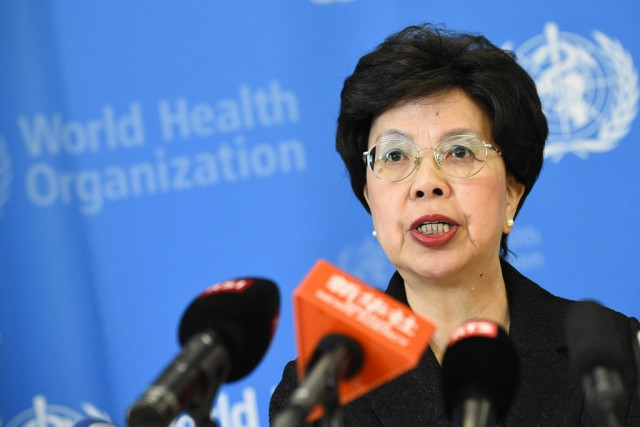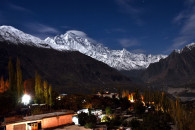WHO declares Ebola epidemic a global emergency
Ebola has claimed at least 932 lives and infected more than 1,700 people since breaking out in Guinea, WHO says

The decision came after a rare, two-day closed-door session of the UN health body's emergency committee, which urged exit screening of all people flying out of affected countries, where nearly 1,000 people have died.
The WHO stopped short of calling for global travel restrictions, urging airlines to take strict precautions but to continue flying to the area.
And it called on countries and airports around the globe to be prepared to "detect, investigate and manage" Ebola cases if they should arise.
The WHO move comes as US health authorities admitted on Thursday that Ebola's spread beyond west Africa was "inevitable", and after medical charity Doctors Without Borders (MSF) warned that the deadly virus was now "out of control" with more than 60 outbreak hotspots.
WHO director-general Dr Margaret Chan appealed for greater help for the countries worst hit by the "largest, most severe and most complex outbreak in the nearly four-decade history of this disease".
"I am declaring the current outbreak a public health emergency of international concern," Chan said, stressing the "serious and unusual nature of the outbreak".
Defining the epidemic a public health emergency of international concern - a label only used twice before, during the H1N1 swine flu pandemic in 2009 and last May for the reemergence of polio in a number of countries - "alerts the world to the need for high vigilance," she said.
However she noted that only a small part of the African continent had been affected.
A patient in Uganda tested negative for Ebola as fears were sparked of a spread to east Africa, and Benin - to the west of the main affected countries - awaited test results from two patients with Ebola-like symptoms.
Ebola has claimed at least 932 lives and infected more than 1,700 people since breaking out in Guinea earlier this year, according to the WHO.
States of emergency were in effect in Liberia, Guinea and Sierra Leone - something WHO said was a first necessary step to bringing the outbreak under control.
Support for health workers and ensuring they have proper protective equipment and training is essential, WHO health security chief Keiji Fukuda told reporters.
"This outbreak really underscores the importance of having strong health systems," he said.
Despite the new measures, Fukuda acknowledged "the likelihood is that it will get worse before it gets better," adding that WHO was bracing to deal with the outbreak "at some level for some number of months."
Soldiers in Liberia's Grand Cape Mount province - one of the worst-affected areas - set up road blocks to limit travel to the capital Monrovia, as bodies reportedly lay unburied in the city's streets.
In Sierra Leone, which has the most confirmed infections, 800 troops were sent to guard hospitals treating Ebola patients, as two towns in the east of the country were put under quarentine and entertainment venues across the country were ordered shut.
In Nigeria, where the outbreak has so far been minor compared to the other affected countries, with two dead and five others infected, public sector doctors have suspended a nearly five-week strike to help battle the deadly virus and prevent it from taking hold in Africa's most populous country.
As African nations struggled with the scale of the epidemic, the scientists who discovered the virus in 1976 have called for an experimental drug being used on two infected Americans to also be made available for African victims.
The two infected Americans, who worked for Christian aid agencies in Liberia, have shown signs of improvement since being given ZMapp, which is made by US company Mapp Pharmaceuticals.
Spain also flew home a 75-year-old Roman Catholic priest, Miguel Pajares, the first European victim of the epidemic, on Thursday. Officials said his condition was stable.
There is no proven treatment or cure for Ebola and the use of the experimental drug has sparked an ethical debate, and WHO is planning a special meeting next week to discuss the issue.
US regulators meanwhile loosened restrictions on another experimental drug which may allow it to be tried on infected patients in west Africa.
Ebola causes severe fever and, in the worst cases, unstoppable bleeding. It is transmitted through contact with bodily fluids, and people who live with or care for patients are most at risk.
US health authorities have warned Ebola's spread to the United States was "inevitable" due to the nature of global airline travel, but that any large outbreak was unlikely.
Fukuda agreed, telling AFP that while Ebola cases could pop up outside the main affected area, it was unlikely the virus would spread much.
"If you have health systems, you have awareness, you are ready for it, this is something that you can stop," he stressed.
First discovered in 1976 and named after a river in what is now the Democratic Republic of Congo, Ebola has killed around two-thirds of those infected, with two outbreaks registering fatality rates approaching 90 percent. The latest outbreak has a fatality rate of around 55-60 percent.



















COMMENTS
Comments are moderated and generally will be posted if they are on-topic and not abusive.
For more information, please see our Comments FAQ